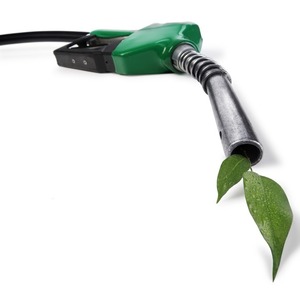New Mexico Senate passes Clean Fuel Standard Act

February 7, 2022
BY Erin Krueger
The New Mexico Senate on Feb. 3 voted 25 to 16 to approve the Clean Fuel Standard Act. The bill, SB 14, aims to reduce the total carbon intensity (CI) of all transportation fuels by 20 percent in 2030 and 30 percent by 2040 when compared to a 2018 baseline.
The proposed CFS aims to achieve the required CI reductions by changing the way producers manufacture fuel, including through increased use of biobased fuels and through expanded access to charging stations for electric vehicles.
Advertisement
Advertisement
The New Mexico Clean Fuels Coalition is backing the bill. The coalition includes members representing the biodiesel, renewable diesel, ethanol, renewable dimethyl ether (rDME), renewable propane, renewable natural gas (RNG), direct air capture, green hydrogen and electricity industries.
“We’re pleased to see such strong support for this important environmental bill,” said Virginia Smith, of Adelante Consulting Inc., which is a founding member of the New Mexico Clean Fuels Coalition. “The Clean Fuel Standard Act puts our state on the right path to cut carbon emissions from the transportation sector and attract new businesses to New Mexico.”
The New Mexico Senate passed a similar bill during the 2021 legislative session. That bill, SB 11, required a 28 percent decrease in the CI of transportation fuel by 2040. The 2021 version of the bill was approved by the New Mexico Senate on March 11, 2021, by a vote of 25 to 14. The state’s House of Representatives, however, failed to take action on SB 11.
Advertisement
Advertisement
Related Stories
Calumet Inc. on Aug. 8 confirmed its Montana Renewables biorefinery is currently running at full capacity. An initial phase of the company’s MaxSAF initiative remains on track to boost SAF capacity to up to 150 MMgy by mid-2026.
Marathon Petroleum Corp. on Aug. 5 released second quarter financial results, reporting improved EBITDA for its renewable diesel segment. The company primarily attributed the improvement to increased utilization and higher margins.
Chevron Corp. on Aug. 1 confirmed the company started production at the Geismar renewable diesel plant in Louisiana during the second quarter after completing work to expand plant capacity from 7,000 to 22,000 barrels per day.
California’s new specified source feedstock attestation requirement: A critical new compliance step for renewable fuel producers
As of July 2025, California’s SCFS requires renewable fuel producers using specified source feedstocks to secure attestation letters reaching back to the point of origin. This marks a significant shift in compliance expectations.
The public comment period on the U.S. EPA’s proposed rule to set 2026 and 2027 RFS RVOs and revise RFS regulations closed Aug. 8. Biofuel groups have largely expressed support for the proposal but also outlined several ways to improve the rulemaking.
Upcoming Events










